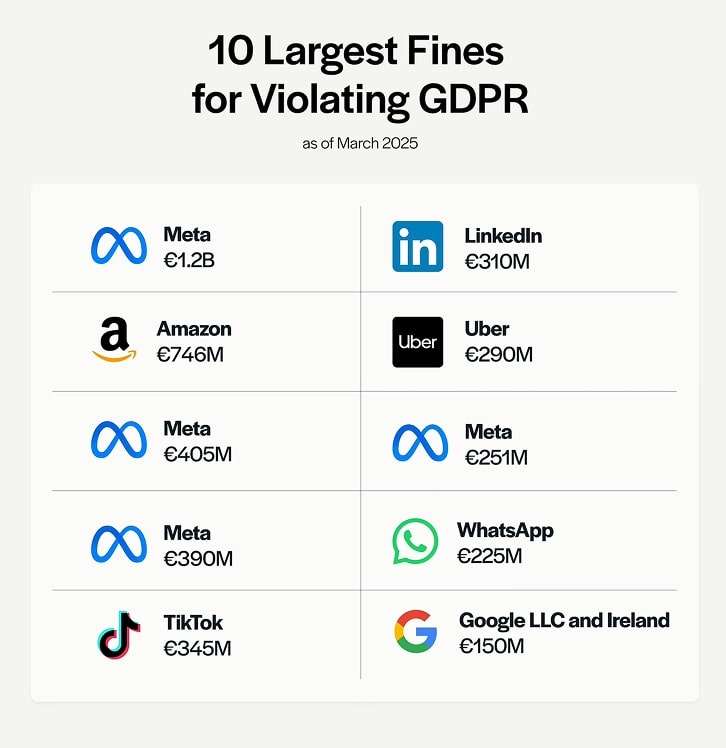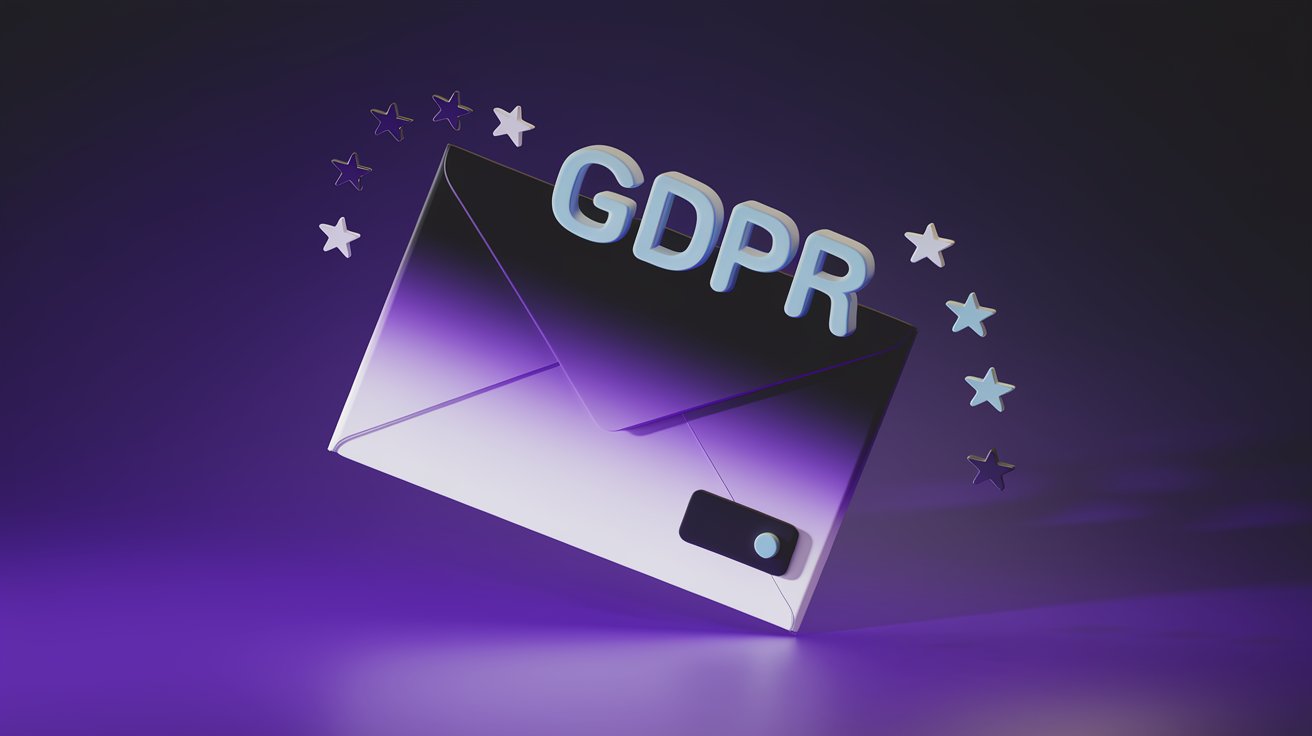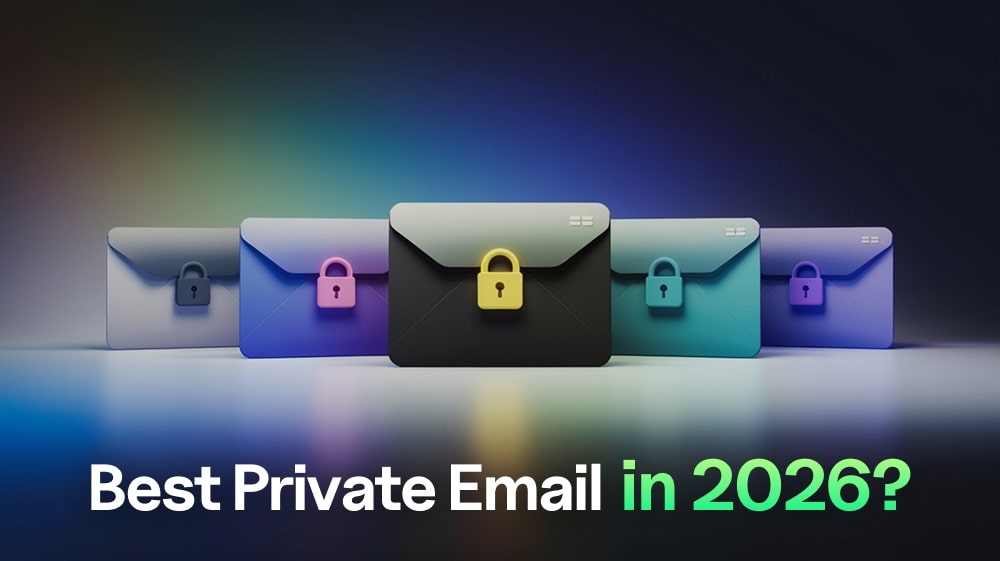What Is GDPR?
GDPR – the General Data Protection Regulation – is a sweeping privacy law that came out of the European Union in 2018. But even if you don’t live in the EU, it probably affects you. If your business handles any data from EU citizens (yes, even just one email address) you’re expected to follow GDPR compliance rules.
It’s not just about checking boxes or throwing a privacy policy on your website. GDPR reshaped how the world thinks about digital data. For the first time, individuals gained true power over their personal information. They can now:
- Ask what data you’ve collected
- Demand you delete it
- Opt out of profiling
- Say “no” to marketing
GDPR also defines 'special categories' of sensitive personal data, including racial origin, political opinions, health data and biometric data. Processing these categories requires stricter conditions and often explicit consent due to the higher risk of misuse.
So, GDPR compliance isn't optional – if you want to stay in business globally without facing massive fines, you've got to comply.
What Makes GDPR Different?
Before GDPR, user data was basically a free-for-all. Companies kept personal information like digital dragons.
GDPR changed all that. It gave people rights and made companies show why they collect data, how they store it, and what they do with it.
Why Email Services Are Ground Zero for GDPR Compliance
Under GDPR, email is one of the riskiest channels for personal data exposure. Why? Because it contains everything regulators care about: names, contact details, behavioral data, financial info, medical records, contracts, internal company secrets, and much more.
Every message is a data package. And every inbox is a potential liability.
Why Email Is Central to GDPR
Unlike encrypted platforms or internal databases, email is a wild frontier. Emails float across servers, get stored indefinitely, and can be forwarded, printed, or leaked in seconds. One misaddressed email with sensitive info? That’s a GDPR breach. One marketing email without proper consent? That’s another violation.
In short: GDPR email compliance is a frontline issue. You can’t fake it and you can’t ignore it.
The Benefits of GDPR Email Compliance
GDPR compliance in email offers many benefits:
- Legal Compliance: Avoids significant fines and penalties, ensuring regulatory obligations are met.
- Enhanced Reputation and Trust: Builds customer trust and loyalty, acting as a competitive advantage in a privacy-conscious market. Transparent privacy practices strengthen customer relationships.
- Operational Efficiency: Streamlines data management, improves data quality, and reduces costs by forcing organizations to understand their data holdings.
- Risk Management: Strong data protection measures and monitoring reduce security and privacy risks, preventing costly data breaches.
- Competitive Advantage: Proactive GDPR compliance helps organizations stand out, attracting privacy-conscious customers and fostering trustworthiness.
- Boosted Engagement: Requiring explicit consent targets communications to interested audiences, leading to higher engagement and more effective marketing.
That’s why many companies now invest in GDPR compliance software, secure infrastructure, and privacy-first email services like Atomic Mail.
And the Risks of Getting It Wrong?
If you don't comply with GDPR, especially when it comes to email, the consequences can be serious:
- Financial Penalties: Fines can reach up to €10 million or 2% of global annual turnover for less severe violations, and up to €20 million or 4% for severe ones. Regulators determine fines based on various criteria. For example, WhatsApp has been high-profilely fined €225m for breaching privacy regulations.

- Reputational Damage: Non-compliance can severely harm an organization's reputation, leading to negative publicity and loss of trust.
- Operational Disruptions: Investigations and audits by authorities can cause significant disruptions, including restrictions on data processing.
- Legal and Litigation Costs: Non-compliance can lead to costly legal challenges, including class-action lawsuits from affected individuals seeking compensation.
- Loss of Customer Trust: Failure to protect customer information can lead to a profound loss of trust, impacting business opportunities and loyalty.
Remember, GDPR doesn’t care how big or small your business is. A single incident, like sending sensitive customer data over an unsecured email, can put your business on the radar.
That’s why businesses turn to GDPR compliant services and tools built with privacy at the core.
Core GDPR Requirements for Email Communication
GDPR compliance in email requires a careful approach to lawful processing, data subject rights, data minimization, purpose limitation, accuracy, and robust security.
Lawful Basis for Processing Email Data
You can't just collect and use email addresses because "everyone does it." Under GDPR, you must have a lawful reason (explicit and documented) for every email interaction.
There are six lawful bases. For emails, the most common are:
- Consent: The user agreed to receive your emails. Withdrawal must be as easy as giving consent, and processing must cease immediately upon withdrawal.
- Contract: Processing is lawful if necessary for a contract with the data subject or pre-contractual steps. This applies to transactional emails like order confirmations or service updates.
- Legitimate Interest: This basis can apply if processing is necessary for the controller's or a third party's legitimate interests, provided these are not overridden by the data subject's rights. It can sometimes justify B2B cold outreach after a balancing test, but an easy opt-out is crucial.
- Legal Obligation: Processing is necessary to comply with a legal obligation.
- Vital Interests: Processing is necessary to protect a data subject's or another person's vital interests, typically in life-or-death situations.
- Public Task: Processing is necessary for a task carried out in the public interest or official authority.
Data Subject Rights in Email
GDPR grants individuals specific rights over their personal data. Organizations must have clear mechanisms to respond to these requests promptly.
- Right to be Informed: Individuals have the right to comprehensive information about their data processing, typically through clear privacy notices.
- Right to Access: Individuals can confirm if their data is processed and access it, usually free of charge.
- Right to Rectification: Data subjects can request correction of inaccurate data without undue delay.
- Right to Erasure (Right to be Forgotten): Individuals can request data deletion if it's no longer needed, consent is withdrawn, or processing is unlawful. The erasure process must be easy.
- Right to Object: Data subjects can object to processing, especially for direct marketing.
- Right to Restrict Processing: Individuals can request processing restriction if data accuracy is contested or processing is unlawful.
- Right to Data Portability: Data subjects can receive their data in a structured, machine-readable format and transmit it to another controller.
Data Minimization and Purpose Limitation in Email
You can’t just collect extra data “in case we need it later.” Nope. That’s against GDPR.
You must:
- Collect the minimum necessary information
- Use it only for the stated purpose
- Never reuse it for unrelated campaigns or profiling
Data Accuracy and Storage Limitation for Email Records
Outdated data is risky data. GDPR says:
- Keep email records accurate and up-to-date
- Delete or anonymize old, unused records
Personal data, including email records, must be kept "no longer than is necessary". Organizations need clear retention periods and automated deletion protocols. Secure destruction of unneeded data is critical.
Security of Email Processing (Technical and Organizational Measures)
GDPR requires "appropriate technical and organizational measures" for email data security. This involves a multi-layered defense combining technology and human elements.
- Email Encryption: Use encryption in transit and at rest for all emails containing personal data, both in transit and at rest.
- Data Loss Prevention (DLP): DLP systems prevent sensitive data from leaving via outbound email.
- Secure File Transfer and Data Access Portals: Use secure protocols (SFTP, FTPS, HTTPS) for bulk PII transfers instead of email attachments. Secure portals allow viewing without direct file transmission.
- Access Controls and Authentication: Implement strong access controls, password policies, and multi-factor authentication (MFA) for email systems.
- Incident Response and Breach Notification: Have a defined process for detecting and communicating personal data breaches. Notify supervisory authorities within 72 hours if the breach poses a high risk.
- Staff Training: Comprehensive security awareness training is essential for all staff on GDPR, phishing, and secure email handling.
- Data Classification Policies: Develop and enforce frameworks for classifying personal data and its email handling requirements.
- Data Protection Impact Assessments (DPIAs): Conduct DPIAs for high-risk processing activities, including many email workflows.
- Third-Party Verification: Assess and contractually obligate external parties, including ESPs, to adequate email protection measures via Data Processing Agreements (DPAs).
- Documentation: Maintain comprehensive records of email flow, security measures, policies, training, and incident response plans.
- Email Archiving: Securely store and search past emails for compliance and eDiscovery.
- URL/Attachment Protection: Scan all attachments and links for malicious content to prevent malware and phishing.
For an even deeper dive into the specific articles and nuances of this regulation, you can read more about GDPR requirements on the official GDPR website.
This is why businesses are shifting to GDPR compliant services that offer features like end-to-end encryption and zero-access architecture, like Atomic Mail does.
The GDPR Email Compliance Checklist (for Every User & Business)
Whether you’re a solo freelancer or a company with 500 employees, GDPR compliance applies to you. Here’s a quick-glance checklist for staying safe and legal.
For All Users:
- Use a GDPR-compliant email provider (like Atomic Mail)
- Encrypt sensitive emails before sending
- Don’t store personal data in your inbox long-term
- Delete old, unused emails regularly
- Be aware of phishing risks (you’re responsible for breaches too)
- Read privacy policies (seriously!)
For Businesses:
- Document your lawful basis for every email campaign
- Collect explicit consent for marketing emails
- Provide easy unsubscribe and preference management options
- Keep a record of consent (who, when, how)
- Be ready to respond to data subject requests within 30 days
- Use GDPR compliance software for email monitoring and auditing
- Train staff on GDPR email compliance strategies
- Review and update policies regularly
If you want email that meets all of these standards out-of-the-box, consider moving to a secure-by-design solution. Atomic Mail was built with GDPR compliance from the ground up.
Choose Atomic Mail – GDPR Compliant Email Service
Traditional email providers, the ones you've probably used for years, were never designed with modern privacy threats or the stringent demands of GDPR in mind. They were built for convenience, often at the expense of your fundamental rights. Atomic Mail was forged in a different fire. We created it from day one to meet, and exceed, the strictest GDPR requirements.
End-to-End Encryption, Everywhere
When you send an email between Atomic Mail users, it's encrypted on your device and decrypted only on the recipient's, ensuring true privacy. You can also send password-protected encrypted emails to non-Atomic Mail users, extending your GDPR email security shield.
Zero-Access Encryption
Most providers can still read your data if they want to. With Atomic Mail, we literally can’t. Thanks to zero-access encryption, we have no technical ability to view your inbox contents, even under pressure.
Bulletproof Infrastructure You Can Trust
Atomic Mail's headquarters are in privacy-forward Estonia, with your data securely housed in Germany's highly regulated, ISO 27001 certified data centers. This infrastructure choice provides robust data protection, supporting our commitment to stringent GDPR requirements.
Anonymous Sign-Up, No Personal Info Required
Sign up for Atomic Mail without providing a phone number, real name, or any other personal identifiers. Your identity remains private from the very first click, reinforcing our dedication to data minimization and your GDPR compliance.
Free Email Aliases for Extra Protection
Use email aliases to separate work, shopping, and personal conversations. Disable them when needed. Protect your identity.
No Tracking. No Profiling. No Surveillance.
Unlike many "free" providers, we never scan your emails, build user profiles, or sell your data to advertisers. Our business model prioritizes your privacy, ensuring your communications remain untracked and unexploited.
Smart Privacy Defaults for Peace of Mind
Atomic Mail is designed so that the highest levels of encryption and privacy are often enabled automatically or are effortlessly accessible. We engineer privacy into every feature, making GDPR compliance intuitive and easy for all users.
Ready to Take Control of Your Email?
Join the people and businesses ditching legacy inboxes for something better: secure, simple, GDPR-compliant email that puts you in control.
➡️ Create your free Atomic Mail account today.



